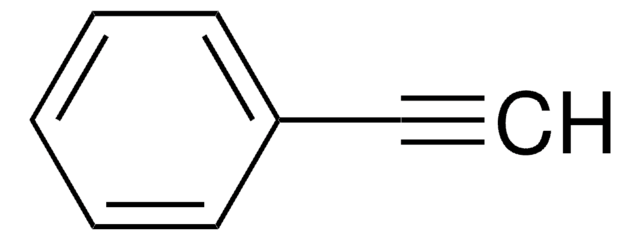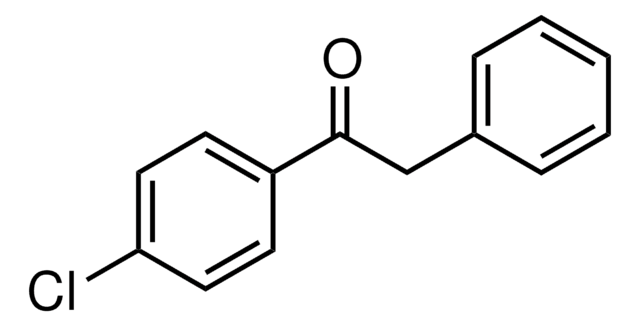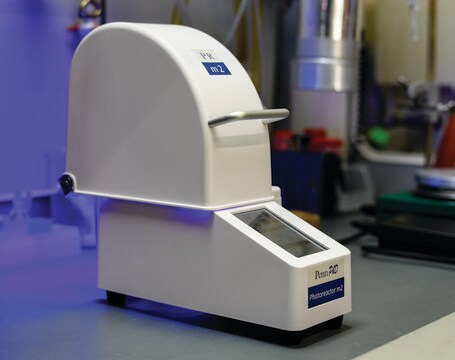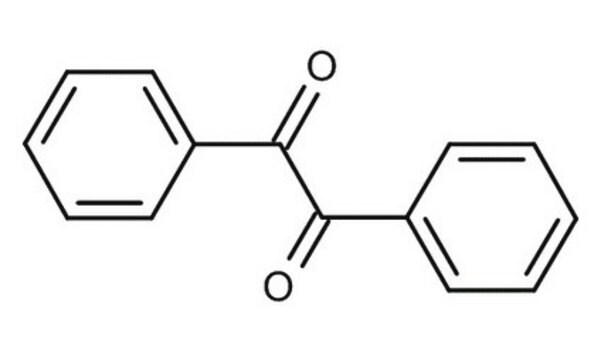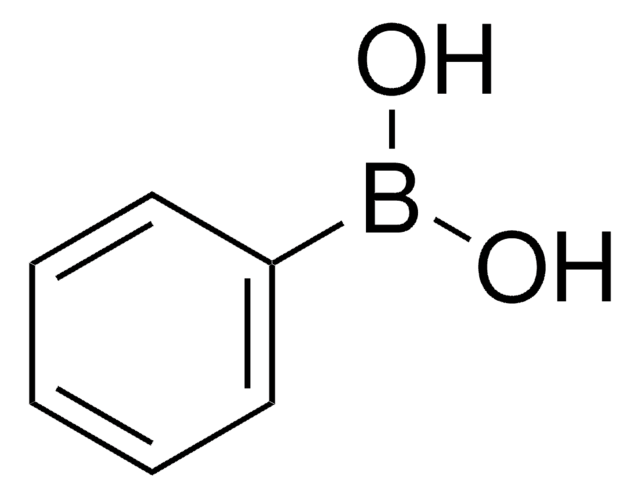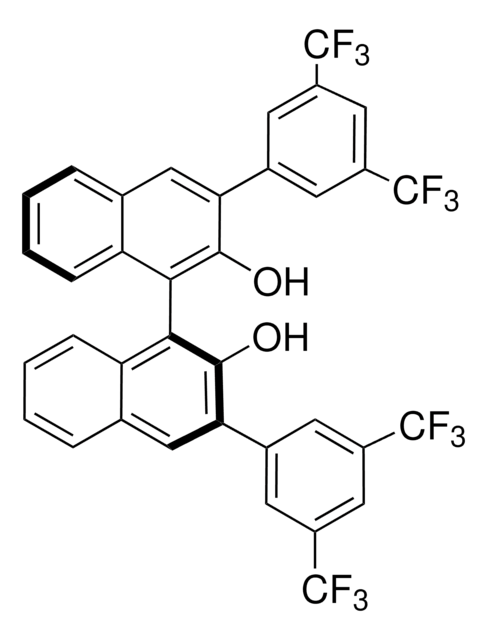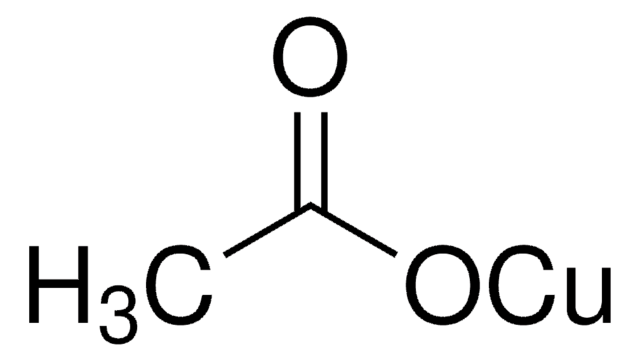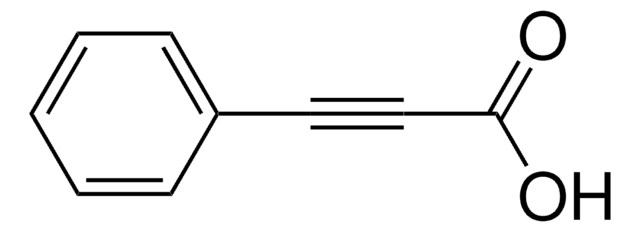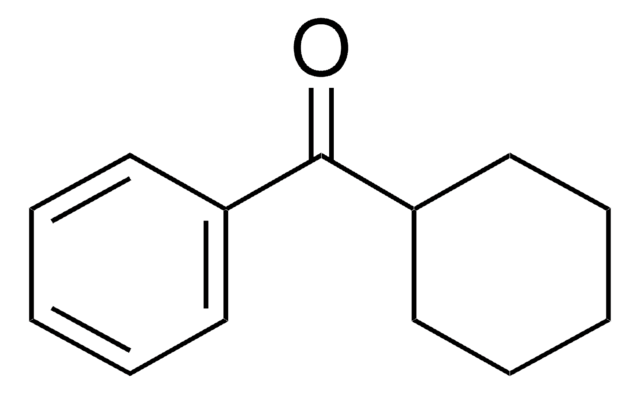추천 제품
분석
97%
양식
crystals
bp
320 °C (lit.)
mp
54-55 °C (lit.)
저장 온도
2-8°C
SMILES string
O=C(Cc1ccccc1)c2ccccc2
InChI
1S/C14H12O/c15-14(13-9-5-2-6-10-13)11-12-7-3-1-4-8-12/h1-10H,11H2
InChI key
OTKCEEWUXHVZQI-UHFFFAOYSA-N
유사한 제품을 찾으십니까? 방문 제품 비교 안내
Storage Class Code
11 - Combustible Solids
WGK
WGK 3
Flash Point (°F)
235.4 °F - closed cup
Flash Point (°C)
113 °C - closed cup
개인 보호 장비
Eyeshields, Gloves, type N95 (US)
이미 열람한 고객
Hadeel Elzeny et al.
Drug design, development and therapy, 11, 483-496 (2017-03-07)
Delivery of multiple therapeutics and/or diagnostic agents to diseased tissues is challenging and necessitates the development of multifunctional platforms. Among the various strategies for design of multifunctional nanocarriers, biodegradable polyphosphoester (PPE) polymers have been recently synthesized via a rapid and
Zelal Adiguzel et al.
Materials science & engineering. C, Materials for biological applications, 78, 942-948 (2017-06-04)
This work describes a soft lithographic method for the generation of patterned both biopolymer and silver with each covered on microscope glass. Because of their biocompatible nature and permeability to gases the biopolymers are convenient for cell culture studies. The
Kwanghyok Jong et al.
Journal of biomaterials science. Polymer edition, 28(14), 1525-1537 (2017-05-24)
In this study, a novel type of pH-responsive polymer PyHES-NAC (2-hydroxy-3-(2-propynyloxy) propyl hydroxyethyl starch (PyHES)) - (N-acetyl-cysteine (NAC)) was synthesized. First, PyHES was prepared via hydrophobic modification of hydroxyl groups in hydroxyethyl starch (HES) with propynylglycidyl ether (PGE), and then
Frederik Kotz et al.
Nature communications, 10(1), 1439-1439 (2019-03-31)
Fused silica glass is the preferred material for applications which require long-term chemical and mechanical stability as well as excellent optical properties. The manufacturing of complex hollow microstructures within transparent fused silica glass is of particular interest for, among others
Chaganti Srinivasa Reddy et al.
Journal of biomedical materials research. Part A, 102(10), 3713-3725 (2013-11-30)
Polycaprolactone (PCL), a synthetic biocompatible and biodegradable polymer generally used as a scaffold material for tissue engineering applications. The high stiffness and hydrophobicity of the PCL fiber mesh does not provide significant cell attachment and proliferation in cardiac tissue engineering.
자사의 과학자팀은 생명 과학, 재료 과학, 화학 합성, 크로마토그래피, 분석 및 기타 많은 영역을 포함한 모든 과학 분야에 경험이 있습니다..
고객지원팀으로 연락바랍니다.
